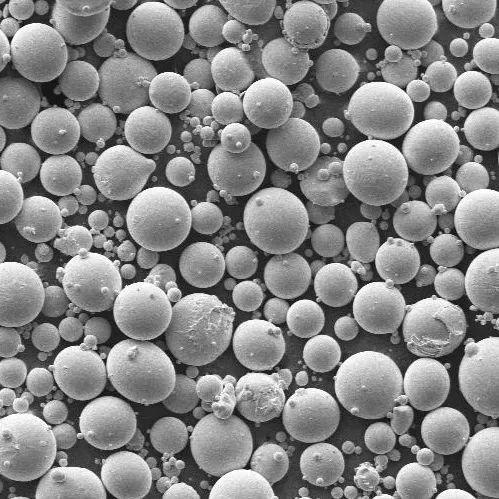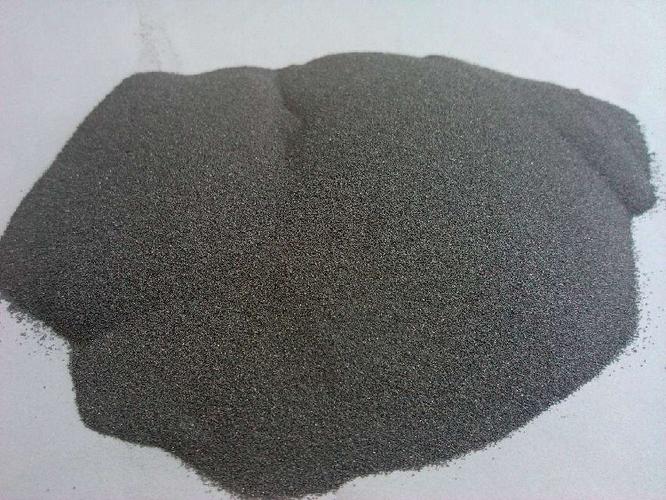Cobalt-based 3D printing powders are specialized metal powders designed for advanced additive manufacturing processes, particularly Direct Metal Laser Sintering (DMLS) and Binder Jetting. These powders are primarily composed of cobalt, mixed with chromium, tungsten, and sometimes nickel or molybdenum, forming cobalt-chromium (CoCr) alloys. Known for their excellent biocompatibility, high wear resistance, and corrosion resistance, cobalt-based powders are prominently used in applications where these properties are crucial.
Biocompatibility: Cobalt-chromium alloys are highly biocompatible, making them suitable for medical implants and dental prosthetics.
High Wear Resistance: The combination of cobalt with chromium and tungsten provides excellent wear resistance, ideal for parts subject to friction or repetitive stress.
Corrosion Resistance: Cobalt-based alloys demonstrate high resistance to corrosion, making them suitable for use in harsh environments.
Strength and Toughness: These alloys offer a balance of high strength and toughness, ensuring durability under demanding conditions.
Precision and Complexity: 3D printing with cobalt-based powders allows for the creation of highly complex geometries and precise parts, beneficial for customized medical solutions.

(Metal Powder 3D Printer Sintering crown SLM Printing Alloys powder CoCr cobalt-chrome powder)
The powder of Metal Powder 3D printer Sintering crown SLM Printing Alloys powder CoCr cobalt-chrome powder is typically made up of a combination of metallic powders and resin, such as cobalt-chrome powder. The specific parameters for this powder may vary depending on the manufacturer and intended application, but some common factors include: 1. Temperature range: The temperature range at which the powder will sinter can be specified by the manufacturer or operator. This is important to ensure that the powder does not become too hot during the sintering process, which could cause it to fail or damage the part being printed. 2. Molar ratio: The molar ratio of the powders used in the powder mixture should be carefully controlled to ensure that the powder particles mix evenly with the resin, and that the sintering process is able to occur efficiently. 3. Porosity: The porosity of the powder can affect the sintering process and the resulting part's strength and durability. Some manufacturers recommend controlling the porosity of the powder to minimize defects or overheating during the printing process. 4. Bond strength: The bond strength of the powder can also affect the performance of the part being printed. Some powders may have higher bond strengths than others, so it is important to choose a powder with appropriate properties for the intended use. Overall, the choice of powder for a Metal Powder 3D printer Sintering crown SLM Printing Alloys powder CoCr cobalt-chrome powder will depend on the specific requirements of the application, including desired print quality, speed, and cost-effectiveness. It is recommended to consult with the manufacturer or experienced printer to determine the best powder for your particular needs.

(Metal Powder 3D Printer Sintering crown SLM Printing Alloys powder CoCr cobalt-chrome powder)
Medical Implants: Hip and knee replacements, spinal implants, and maxillofacial implants benefit from the biocompatibility and durability of cobalt-chromium alloys.
Dental Prosthetics: Crowns, bridges, and frameworks for removable partial dentures leverage cobalt-based powders for their strength and aesthetics.
Aerospace: Components requiring high wear resistance and durability in aircraft engines and turbines can be fabricated using cobalt-based alloys.
Tooling and Dies: Due to their wear resistance, cobalt-based powders are used for manufacturing complex tooling and injection molding dies.
High-Temperature Applications: Components exposed to high temperatures, such as those in the energy sector or automotive industry, can benefit from the heat resistance of these alloys.
Company Profile
Kmpass is a trusted global chemical material supplier & manufacturer with over 12-year-experience in providing super high-quality 3D printing powder and relative products.
The company has a professional technical department and Quality Supervision Department, a well-equipped laboratory, and equipped with advanced testing equipment and after-sales customer service center.
If you are looking for high-quality 3D printing materials and relative products, please feel free to contact us or click on the needed products to send an inquiry.
Payment Methods
L/C, T/T, Western Union, Paypal, Credit Card etc.
Shipment
It could be shipped by sea, by air, or by reveal ASAP as soon as repayment receipt.
Q: Is Metal Powder 3D Printer Sintering crown SLM Printing Alloys powder CoCr cobalt-chrome powder suitable for long-term implantation in the human body? A: Yes, cobalt-chromium alloys are widely accepted and used for long-term implants due to their excellent biocompatibility and durability.
Q: How does the cost of Metal Powder 3D Printer Sintering crown SLM Printing Alloys powder CoCr cobalt-chrome powder compare to traditional manufacturing methods for medical implants? A: While initial setup costs can be high, 3D printing allows for customization and reduced waste, potentially offsetting costs over traditional manufacturing for complex or low-volume production runs.
Q: Is Metal Powder 3D Printer Sintering crown SLM Printing Alloys powder CoCr cobalt-chrome powder difficult to work with compared to other metal powders? A: Cobalt-based powders can be challenging due to their high melting points and specific sintering requirements, necessitating careful process control and experienced operators.
Q: Can cobalt-based 3D printed parts be post-processed for improved surface finish? A: Yes, common post-processing steps like machining, polishing, and surface treatments can be applied to enhance the finish and meet specific application requirements.

(Metal Powder 3D Printer Sintering crown SLM Printing Alloys powder CoCr cobalt-chrome powder)



